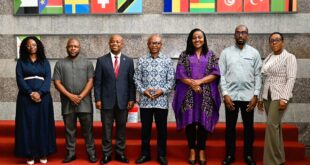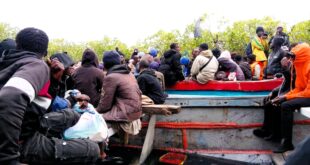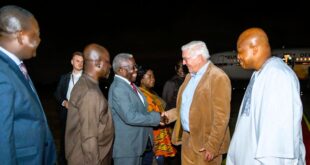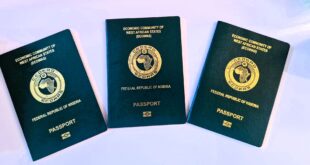Prof. David Monda of the City University of New York in this opinion piece outlines the major challenges that the new president of Tanzania faces and how best she should address them and make the country work better
—–
An old Swahili proverb states, “Hata kiporo ni ugali – Even yesterday’s ugali, is still ugali”. While the legacy of President Magufuli has been tainted by his covid denialism, there is still something left that President Suluhu can build upon. Suluhu faces serious challenges. Here are three ways she can be successful as the president of Tanzania.
Samia Suluhu is faced with a serious Covid-19 pandemic that her predecessor either did not want to acknowledge or could not acknowledge. The reason Magufuli, whose background is in Chemistry, would not want to acknowledge the presence of Covid.19 in Tanzania is baffling. Suluhu needs to engage the international community’s effort in fighting this global epidemic because regionally and globally, Tanzania has been dragging its feet.
For starters, Tanzania needs to begin to openly collect and share data on the number of covid.19 infections and deaths in the country. In addition to this, basic measures in social distancing, mask wearing, and regular washing of hands are critical if Tanzania is to keep its infection and spread rates down.
Acknowledging the existence of covid.19 in Tanzania is the first step in redirecting the sinking ship that is Tanzania.
Secondly, Suluhu needs to seriously engage in robustly confronting the threat of terrorism at Tanzania’s Southern border with Mozambique at Cabo Delgado. An ISIS allied group locals in Mozambique call (Al Shabaab – unrelated to the Somalia group) is reigning terror on Mozambicans. The spillover effects of this terrorism are disrupting life in the border areas of Tanzania.
The militant islamist group is leading armed resistance against the Mozambican government accusing it of marginalization and neglect. It has engaged in random beheadings of innocent civilians and destruction of property.
The root of this conflict is the militants fight for a share of the 20-billion-dollar natural gas reserves found in the region. Suluhu has to use the frameworks of Southern African Development Community (SADC) and the African Union (AU) to find a regional solution to this instability that is spilling over into Tanzania.
Therefore, confronting the terror threat at the southern border is her second big task.
Thirdly, Samia needs to “pivot East” and embrace the East African Community (EAC) as she maintains relations with Southern African Development Community (SADC). Her predecessor advanced a “Tanzania First” policy that seemed eerily like a unilateralist “Make Tanzania Great Again – MTGA”.
Magufuli’s foreign policy agenda appeared antagonistic to Kenya. It seemed centered on replacing Kenya as the regional economic hub by challenging Kenya’s leadership of the EAC, Kenya’s domination of regional import infrastructure in roads, airports, railways, and maritime ports.
In addition to this, Magufuli’s rare trips abroad were to SADC related conferences while being a no show at EAC meetings. Magufuli developed rival infrastructure networks in the oil pipeline with Uganda, to take away a deal Uganda was poised to sign with Kenya when a regionally complimentary network would have served East Africa better. He revived Air Tanzania at a point in time when national airlines are a disastrous loss-making effort.
Suluhu will need to find a way to have Tanzania work with its neighbours in East Africa through complementary frameworks rather than blatantly competitive paradigms that play to a nationalist narrative with little economic raison d’etre. The whole East African region needs grow faster together, rather than each country advancing its interests.
Lastly, Suluhu needs to expand the democratic space. She should allow Zanzibar to have a national plebiscite to determine its future. She should also welcome back opposition voices of dissent like Tundu Lissu and Godbless Lema that were hounded into exile by the Magufuli administration.
True democracy only thrives when there is a strong government that also allows free, vibrant, and open political playing field for the opposition. Opposition to the government keeps the ruling party in check and provides alternative viewpoints on national policy.
Magufuli had little time for opposing viewpoints and “bulldozed” his agenda with contemptuous disdain for the opposition. This system of autocracy is unhealthy and unsustainable. The Chama Cha Mapinduzi (CCM), which has been in power since independence, sees dominance of government in Dodoma as its birthright. Suluhu has a chance to change this. She can make CCM more accountable to the people of Tanzania and to the CCM party members themselves.
If she is able to address the public health conundrum, address the terrorist threat to national security and fix bottlenecks to regional trade, Tanzania will be opening a new chapter that will make Tanzania work.
“Hata kiporo ni Ugali – all is not lost”.
Prof Monda teaches political science, international relations and American government at the City University of New York (York College), New York, USA. dmonda1@york.cuny.edu
 THE AFRICAN COURIER. Reporting Africa and its Diaspora! The African Courier is an international magazine published in Germany to report on Africa and the Diaspora African experience. The first issue of the bimonthly magazine appeared on the newsstands on 15 February 1998. The African Courier is a communication forum for European-African political, economic and cultural exchanges, and a voice for Africa in Europe.
THE AFRICAN COURIER. Reporting Africa and its Diaspora! The African Courier is an international magazine published in Germany to report on Africa and the Diaspora African experience. The first issue of the bimonthly magazine appeared on the newsstands on 15 February 1998. The African Courier is a communication forum for European-African political, economic and cultural exchanges, and a voice for Africa in Europe.


































